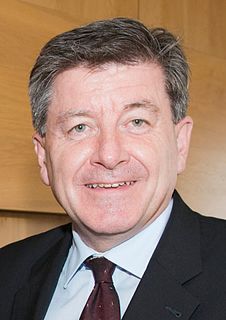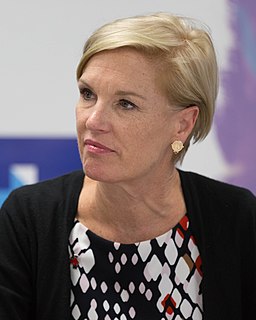A Quote by Tedros Adhanom
As a candidate for Director-General of the WHO, I believe there is a key role WHO needs to play to improve and advance mental health. It can help advocate for efficient resources and services - and efforts to reduce stigma - to be in place at local, national, and global levels.
Related Quotes
One of the issues I think is very important, in many communities of color, there's a stigma about mental health. We find that the shaming that comes from acknowledging that one may have some issues that may relate to mental health, often people are not willing to go and seek additional help because of that shaming or that cultural stigma that's associated with it. And I think that we need to make this change in how people approach mental health.
If policy makers and program managers participate in an interdisciplinary assessment team, make informal visits to local families and have in-depth conversations with local providers and health authorities, the real needs and complex challenges of organizing good reproductive health services become apparent.
We know, at least, that this decision (ending factory farming) will help prevent deforestation, curb global warming, reduce pollution, save oil reserves, lessen the burden on rural America, decrease human rights abuses, improve publish health, and help eliminate the most systematic animal abuse in history.
Where LGBT and mental health issues collide is over stigma. And stigma is society's problem not the problem of the LGBT or mental health community. What we have to deal with is the ignorance, fear and prejudice that blight the lives of those who have nothing wrong with them in any moral or transgressive sense. It is society that is ill.
I believe that the role of limited government should be looking after the needs of veterans, the elderly, children and those institutions that improve the quality of life for struggling families - I don't believe that government should bend to serve the needs of subsidized multi-national corporations and entitled billionaires.
At Planned Parenthood, we see the impact of abortion stigma firsthand, in the women who delay getting reproductive health care because they fear they’ll be labeled and judged. We see the effect of stigma on doctors, health center staffers, and others who help provide abortion services. And we see the impact in laws that regulate and restrict abortion in ways that would never happen with any other medical procedure.
































